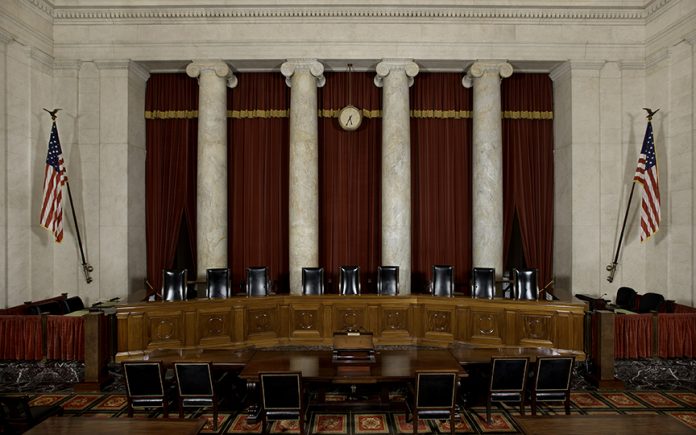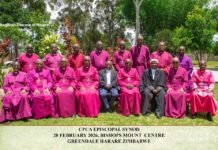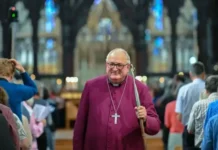Mainline Presbyterians and United Methodists have signed on to an Amicus Brief in support of an Episcopal Church appeal before the U.S. Supreme Court concerning disputed church properties worth tens of millions of dollars. (A tip of the hat to journalist George Conger who has the Amicus Brief posted on Anglican Ink here).
The Episcopal Church and All Saints’ Episcopal Church of Fort Worth, Texas, are asking the high court to overturn a unanimous ruling by the Texas Supreme Court. That ruling found that the Episcopal Diocese of Fort Worth (now affiliated with the Anglican Church in North America) and its corporation is the legally recognized diocese and rightfully controls diocesan property.
Episcopalians disagreed, arguing that the diocese could not separate itself from the denomination outside of a vote of the General Convention. Remaining Episcopalians set up their own “renewing” diocese, claiming in court that it is the legitimate entity. That Episcopal Church diocese has struggled numerically and financially, receiving significant subsidies from the national church. The ACNA diocese argued successfully that Texas law did not permit the removal of elected diocesan officers, which govern a legal corporation.
Presbyterian Church (USA) Stated Clerk J. Herbert Nelson, II on behalf of the PCUSA General Assembly and Bryan Mills of the United Methodist General Council on Finance and Administration (GCFA) are listed as additional counsel on the brief. They are joined by officers of the United Church of Christ, the Reformed Church in America and the Moravian Church in America.
Denominational officials across each of the three churches “hold differing views regarding religious government, hierarchy, organization and structure,” according to the brief – but they see common cause in preventing or punishing splinter groups as a matter of religious autonomy.
Several PC(USA) presbyteries litigated with departing congregations following General Assembly decisions to remove the “fidelity and chastity” standard from clergy vows in 2008 and later in 2014 to permit same-sex marriage. The United Methodist Church has neither enacted same-sex marriage rites nor experienced large-scale departures, but will likely begin a division of assets between revisionists and traditionalists in an expected separation vote at General Conference in autumn of 2021.
The Supreme Court has been reluctant to grant a hearing on a church property case, leaving such decisions in the past generation to state courts. That has resulted in an uneven patchwork of decisions about the ownership of church properties across several jurisdictions.
(You can watch my interview with Bishop Ryan Reed of the Diocese of Fort Worth here).
It is unclear why the U.S. Supreme Court might take up a case that largely rests upon state corporate law. Amici argue that the court should not consider “neutral principles” in property ownership, instead as a matter of religious liberty they should defer to the authority of the churches themselves on church splits. At issue is also the enforceability of trust provisions within those churches’ governance. The Episcopal Church insists that all of its parishes assent to an implied trust simply by being associated with the General Convention. Departing Anglicans have argued that only a trust of the local church that expressly cedes ownership to the denomination is legally binding.
The Texas ruling itself had no dissenting opinions. The U.S. Supreme Court in 2014 declined to review a Virginia Supreme Court decision that found the disputed property of The Falls Church Anglican in Falls Church, Virginia belonged to the Episcopal Diocese of Virginia. That case, partly due to the large size of the congregation involved and its proximity to the nation’s capital, had at least as high a profile as the Texas one.
Episcopalians and departing Anglicans have been in legal conflict in several parts of the United States. Churches and five separate dioceses disaffiliated from the denomination. A court case involving the denomination and the Anglican Diocese of South Carolina is ongoing: churches there await a challenge by Episcopalians before the South Carolina Supreme Court. A district court interpreted five separate opinions handed down nearly three years ago by the state Supreme Court, entering an order that those parishes controlled their own property, not the national church.



